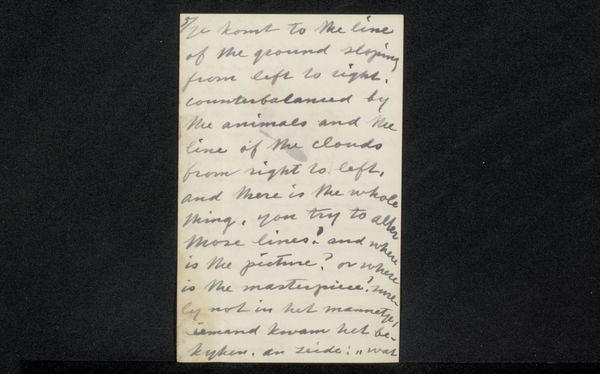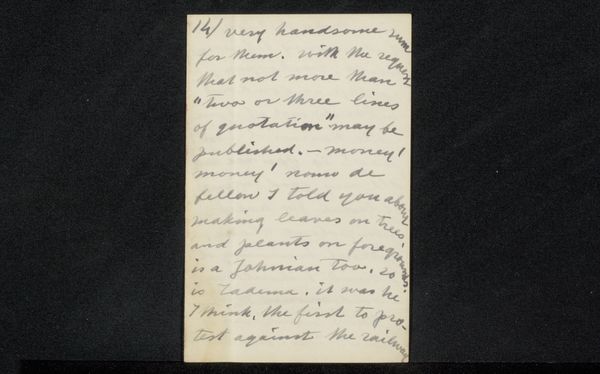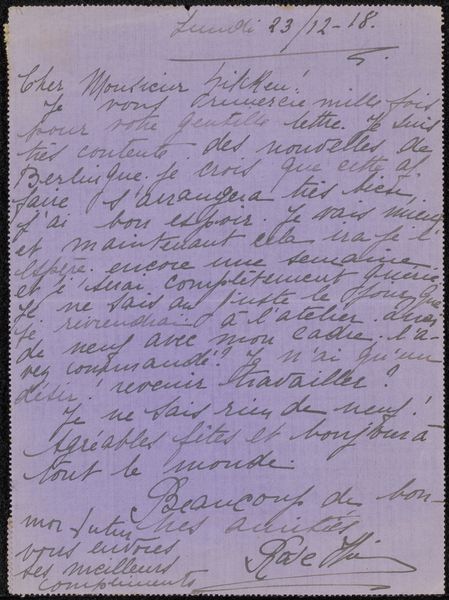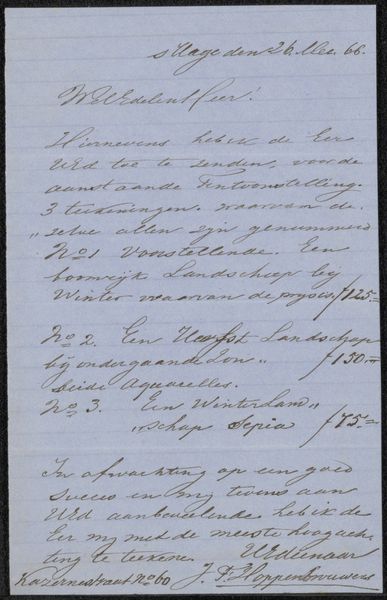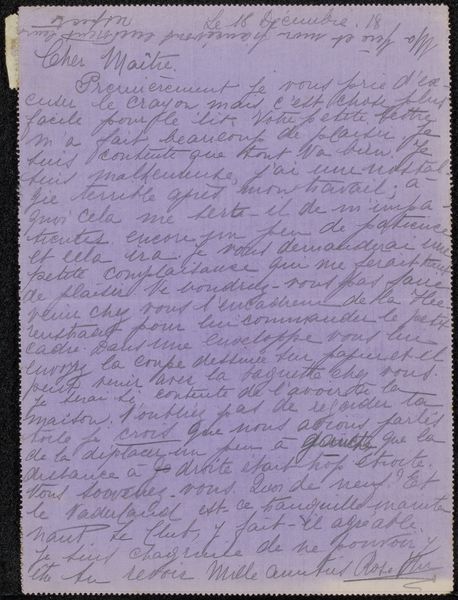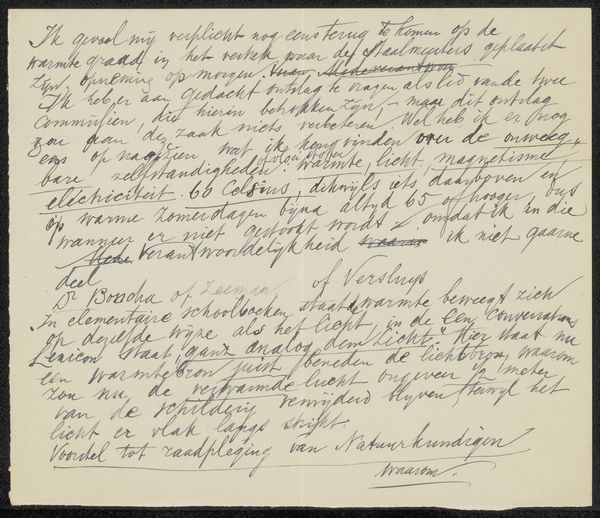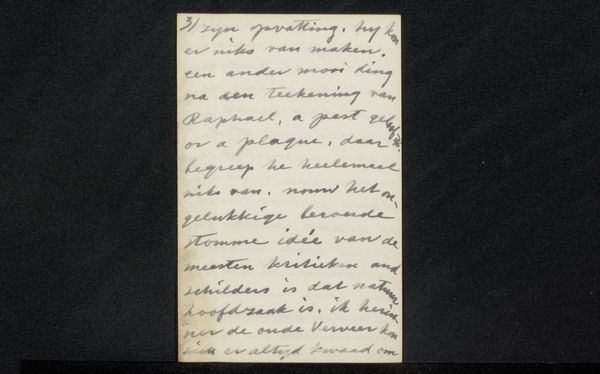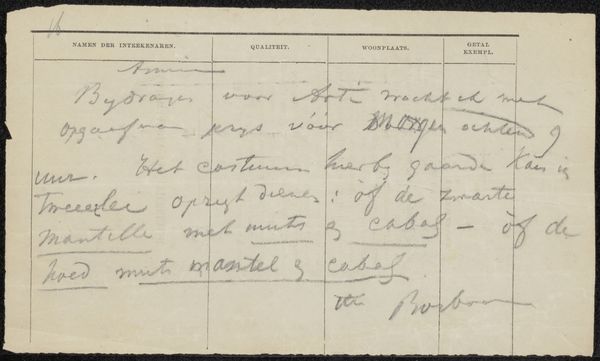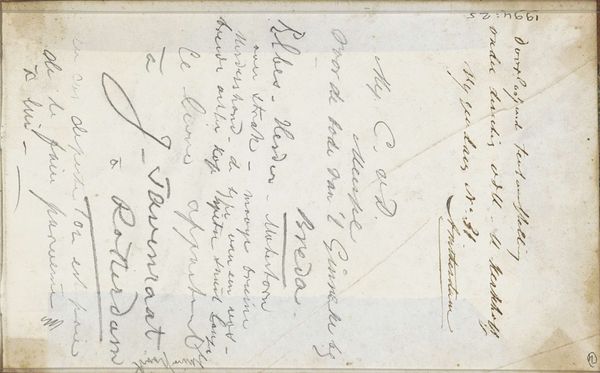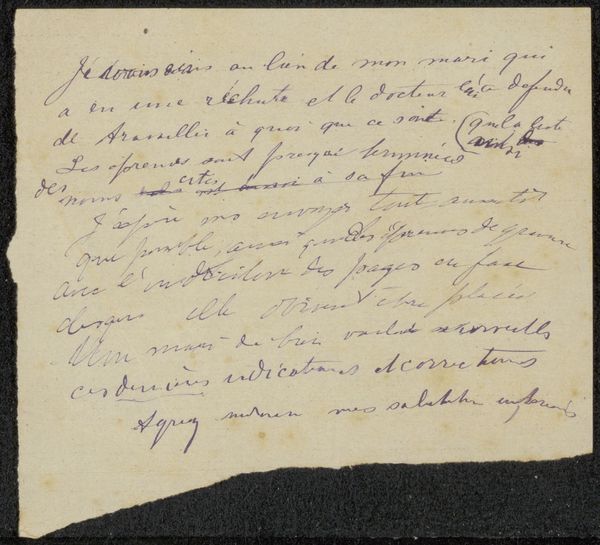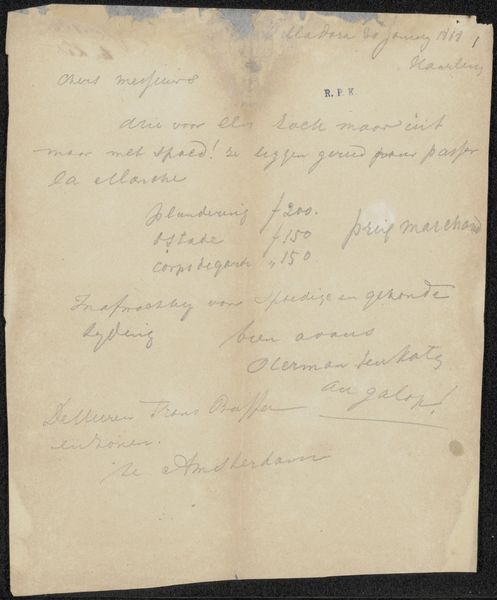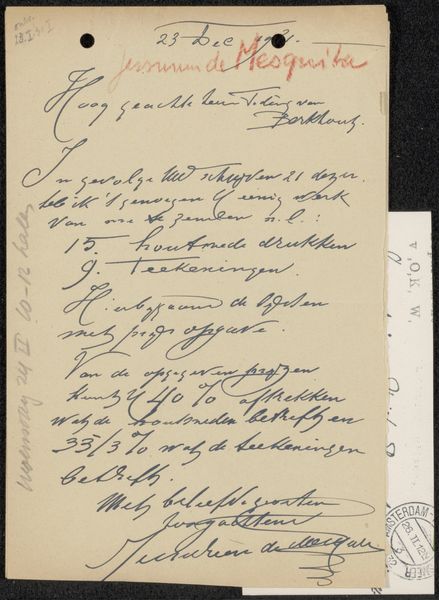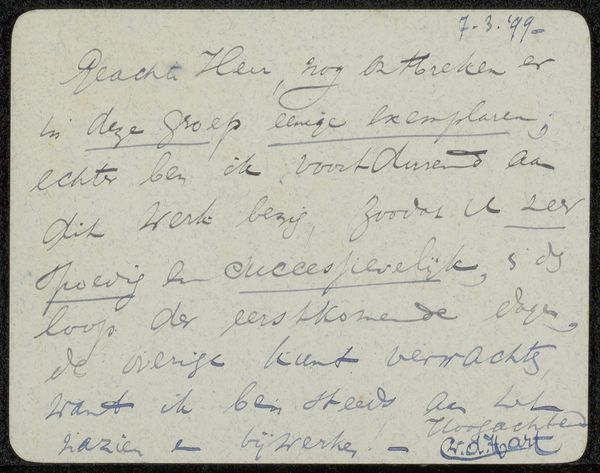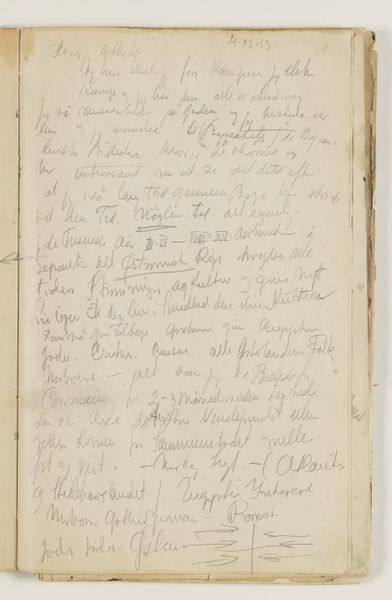
drawing, paper, ink
#
portrait
#
drawing
#
type repetition
#
written text
#
aged paper
#
typeface
#
paper
#
ink
#
fading type
#
stylized text
#
thick font
#
white font
#
historical font
#
columned text
Copyright: Rijks Museum: Open Domain
Curator: This is a letter from Matthijs Maris to Philip Zilcken, dating from before 1892. It’s a drawing, done in ink on paper, and it's currently held at the Rijksmuseum. Editor: My first thought? Hauntingly beautiful handwriting. Like, I feel I should decode something here, or cast a spell. There’s so much…intention. Curator: Intention indeed! Letters themselves, before the age of instant communication, carried so much weight. The visual quality, the script – all formed part of the message. Note the almost ghostly fading of the ink in places, too. That enhances the sense of time passing, and stories once told. Editor: Right? It feels like peeking into a private world, a whispered confidence. I'm seeing this looping, slightly slanting script, the elegant formations of the letters - there is character here. A real signature. Curator: Maris's letters were often considered works of art in their own right. They weren’t just utilitarian; they were expressive, reflective of his artistic temperament. The address at the top – “47 St. John’s Wood Terrace” – plants us firmly in his London period. Editor: And the phrase "mannetje comes sunday" stuck out to me, that and the question mark. Fragments, clues…it's almost like a little stage play playing out here! Curator: Precisely. Letters are, in a sense, performances. We choose our words, shape our sentences. The very act of writing becomes a curated presentation of self. We could think of “Wisseling” that he mentions…Was it a painting he gifted, that Zilcken failed to reciprocate in kind, in effect "owing" the painter? Editor: That rings true. A hint of melancholy clinging to it…He put something of himself on paper. More than words, the shapes the text took in those times meant to deliver an entirely richer payload. Curator: The handwritten form becomes a direct, tangible connection to the artist's hand and mind, something digitally typed text can never replicate. I think that’s the key. Editor: I can see why Maris was famous not only as an artist but for such a work such as this, a brief look into an inner state rendered in something like raw, unprocessed feeling made tactile. Curator: Absolutely. It prompts you to dwell on time itself, on fleeting moments made semi-permanent through ink and paper. Editor: A melancholic pause amidst the endless present, wouldn't you say?
Comments
No comments
Be the first to comment and join the conversation on the ultimate creative platform.
